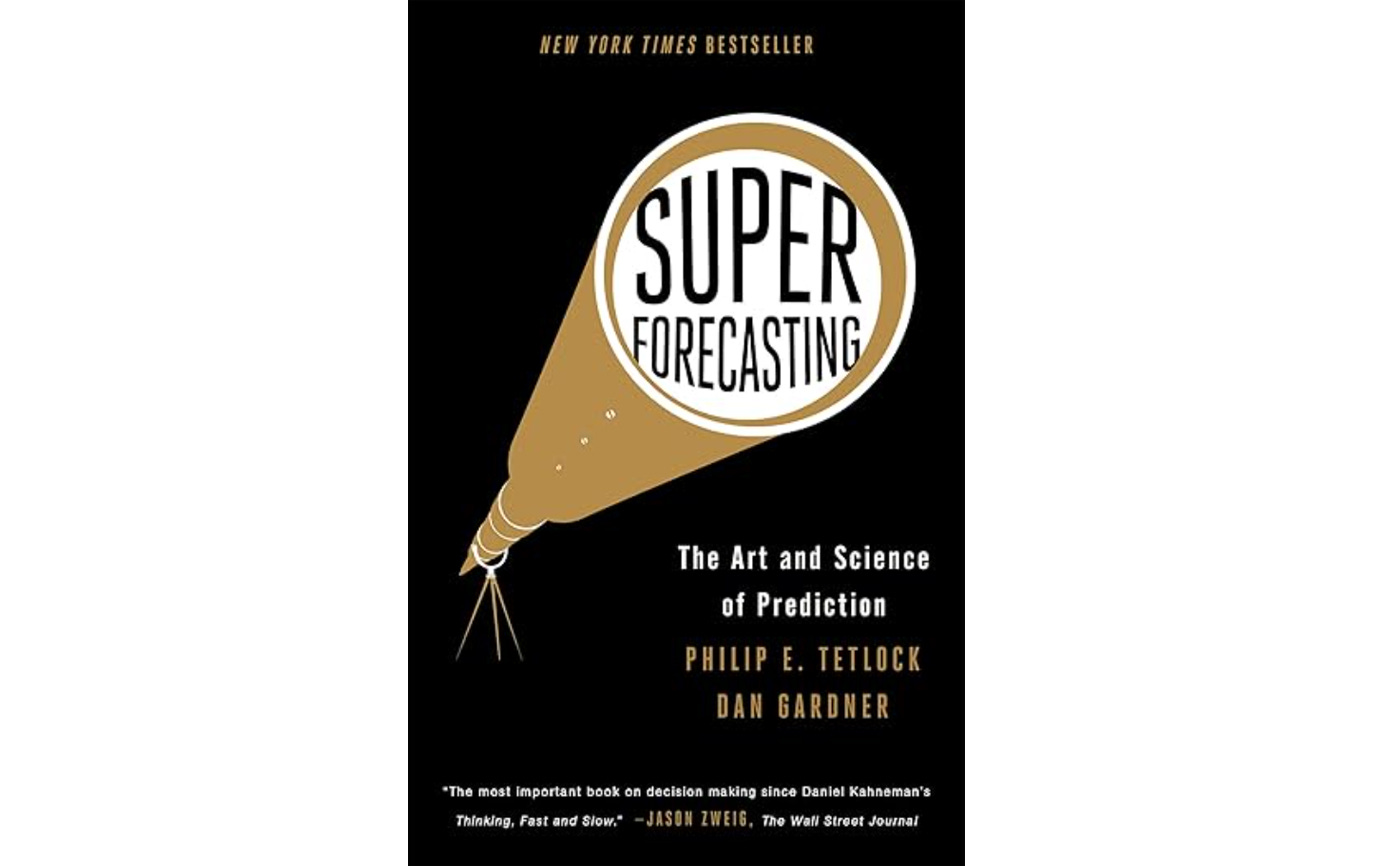The Futility of Forecasting
What if we gave up stressing about something we can't predict or control?
On any given day, you can be bombarded by expert forecasts of what’s going to happen in the markets the next day, or month, or year, etc.
If you’re not an expert yourself, these likely sound plausible—perhaps even intelligent.
But are they?
More importantly, are they useful in helping you make investment decisions?
If you’re a regular reader of these posts, you know where we stand. These conflicting and contradictory opinions are more stressful than helpful.
Not to mention irrelevant if you’re a long-term investor.
And they can be costly if they lead you to overreacting to short-term market swings.
In this post, we thought we’d share with you the perspectives of some individuals we admire, with a few quotes from their books.
Superforecasting by Philip E. Tetlock and Dan Gardner
Tetlock and Gardner provide numerous examples of what they call “superforecasters,” noting that “superforecasting demands thinking that is open-minded, careful, curious, and—above all—self-critical.”
In doing so, they call out those pundits who fall short of this standard, perhaps with ulterior motives:
It’s worth acknowledging that many of the financial commentators you hear from on a daily basis hardly have the time for thoughtful, in-depth analysis. They are under pressure to get something out there.
And, as Tetlock and Gardner note, they are almost never asked to reconcile what they said with what actually happened.
If you’re interested in The Art and Science of Prediction—as the book is subtitled—we highly recommend you check this book out.
The Pleasure of Finding Things Out by Richard Feynman
Richard Feynman is one of our heroes, and he had his own take on pseudo-experts:
Again, Feynman isn’t suggesting that there aren’t legitimate experts in various fields; he’s just cautioning that there are quite a few pseudo-experts who are taking some questionable shortcuts.
If you’ve never read anything by Feynman, The Pleasure of Finding Things Out is a good place to start.
Four Thousand Weeks: Time Management for Mortals by Oliver Burkeman
It’s fair to say that—partly due to limitations of time—nearly all the daily financial commentary we hear is pseudo-science. Yet we continue to listen, and continue to feel stress and indecision as a result.
What if we could stop?
That brings us to an interesting take by Oliver Burkeman:
The parallel here is that trying to make short-term market predictions is every bit as futile as trying to have complete mastery over your time. If you accept that it’s impossible, you no longer have to berate yourself for not being able to do it (or for not finding someone else who can do it).
There’s no need to stress about short-term market movements. As long as you’ve made smart investment decisions, for example, not putting Stocks in your Short-term Portfolio and featuring stocks in your Long-term Portfolio, you can be confident that things will work out in the long run.
Best regards,
Stuart & Sharon







